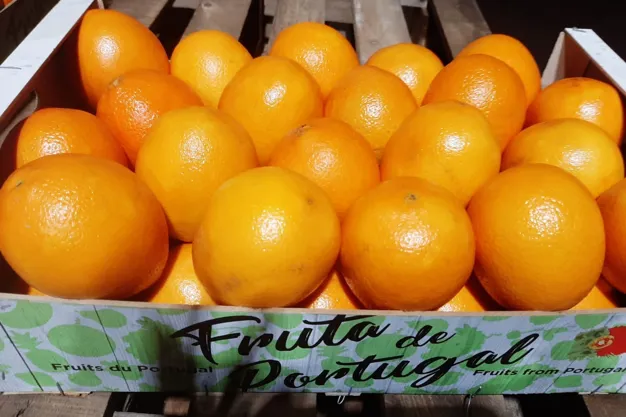The Portuguese climate is very suitable for the cultivation of oranges according to Pedro Marques, export manager of Portuguese fresh produce exporter Frutas Classe: “Oranges are an important part of Portugal's agricultural production and the country is renowned for its high quality citrus fruits. Portugal has a favorable climate for growing citrus fruit, with mild winters and warm summers, especially in the southern regions. The Algarve region, in the south of Portugal, is particularly well known for its orange groves. This area benefits from plenty of sunshine and a Mediterranean climate, creating ideal conditions for growing citrus fruit. Portuguese oranges are often praised for their sweetness and juiciness. As well as being consumed domestically, Portuguese oranges are also exported to various international markets.”
Marques expects a significant increase in production for the company’s oranges this year. “Citrus production in Portugal has increased over the last ten years and today we produce around 350,000 tonnes of citrus in Portugal. In Frutas Classe, we packed and sold around 2,000 tonnes of citrus fruit last year. This season we forecast a 20 per cent increase. We use all types of packaging, depending on the market. In France, for example, it's very common to pack oranges with leaves. The oranges get their color on the tree and are harvested when the ripeness is optimal. When exported to Germany, they are packed in in 1.5kg bags.”

There seems to be quite a bit of confusion when it comes to the Portuguese origin of oranges. Marques explains this has to do with Spanish oranges being falsely labelled as Portuguese in new markets: “Today, the quality of Portuguese oranges is well known and customers pay more for an orange from Portugal than from Spain. In the new markets, there may be some confusion between Portuguese and Spanish citrus, because of their geographical proximity and similar climate. But the fact that the fruit is harvested when it is ripe changes everything. This success in quality brings with it several challenges, the biggest of which is origin fraud. It is quite common to see in central markets oranges labelled Portuguese origin, when in the box we can easily see that they are Spanish oranges. These types of oranges can be sold for 20/30 cents less than the real Portuguese oranges.”
The mislabelling of oranges means that the IGP indication is very important to inform the buyers of what they’re getting, Marques states. “This is the reason that we offer only oranges from our historical farmers in the Algarve and when is possible we offer IGP (Protected Geographical Indication) oranges, which guarantees that the production is real from the Portugal and with the quality that makes our citrus so special and respected.”

The season for these IGP labelled oranges has officially kicked off: “The authorities have announced that oranges harvested after 4 December are naturally colored and have enough sugar can be sold as IGP to the benefit of all good producers. This season, as every season, production begins with the New Hall variety. This variety has a great taste and an incomparable sweetness. At the end of January, we’ll switch to Lane late to finish in July with Valencia late. Portuguese oranges are still developing with a great standard of taste, quality, and quantity from December to July!” Marques concludes.
For more information:
Pedro Marques
Frutas Classe
Tel: (+351) 918 384 498
Email: [email protected]
www.frutasclasse.pt
